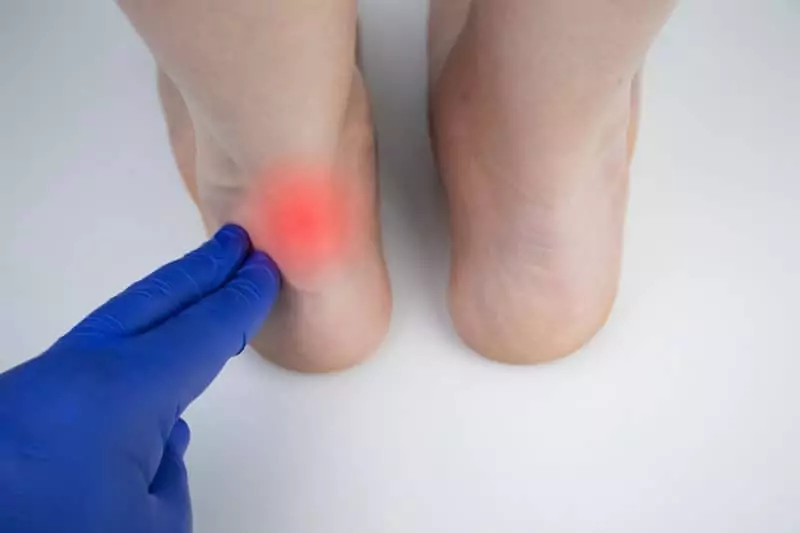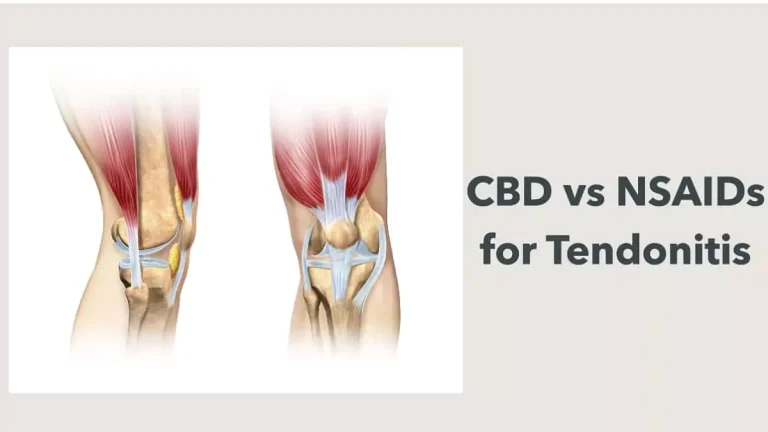Types of CBD for Tendonitis: CBD, or cannabidiol, is a natural compound derived from the cannabis plant that has gained popularity in recent years for its potential health benefits. One condition that CBD may help alleviate is tendonitis, a common injury that occurs when the tendons in the body become inflamed or irritated. In this article, we will explore the different types of CBD for tendonitis.
Table of Contents

Types of CBD for Tendonitis:
1. CBD Oil
CBD oil is one of the most popular types of CBD products available on the market. It is made by extracting CBD from the cannabis plant and then diluting it with a carrier oil, such as hemp seed oil or coconut oil. CBD oil can be taken orally or applied topically to the affected area. When taken orally, CBD oil is absorbed into the bloodstream and can help reduce inflammation throughout the body. When applied topically, CBD oil can help soothe the affected area and reduce pain and inflammation.
2. CBD Topicals
CBD topicals are products that are applied directly to the skin, such as CBD creams, CBD balms, and CBD salves. They are designed to be absorbed through the skin and provide targeted relief to the affected area. CBD topicals can be particularly effective for treating tendonitis, as they allow for the CBD to be delivered directly to the site of the injury. In addition to CBD, many topicals also contain other natural ingredients, such as arnica and menthol, which can help provide additional pain relief.
3. CBD Capsules
CBD capsules are a convenient and easy way to take CBD. They are made by encapsulating CBD oil in a gel capsule, which can be swallowed like any other pill. CBD capsules are particularly useful for those who want to take a consistent dose of CBD, as each capsule contains a predetermined amount of CBD. While CBD capsules are not as fast-acting as other types of CBD products, they can provide longer-lasting relief.
4. CBD Edibles
CBD edibles are food products that are infused with CBD. They come in a variety of forms, such as CBD gummies, chocolates, and baked goods. CBD edibles are a discreet and tasty way to consume CBD and can be particularly useful for those who do not like the taste of CBD oil. However, it is important to note that CBD edibles may take longer to take effect, as they need to be digested before the CBD can be absorbed into the bloodstream.
5. Full-Spectrum CBD
Full-spectrum CBD products contain all of the natural compounds found in the cannabis plant, including THC. While THC is the compound that is responsible for the psychoactive effects of cannabis, full-spectrum CBD products contain only trace amounts of THC and are not intoxicating. Full-spectrum CBD products may be particularly effective for treating tendonitis, as they contain a range of natural compounds that can work together to provide greater relief.
6. CBD Isolate
CBD isolate is a pure form of CBD that has been isolated from all of the other natural compounds found in the cannabis plant. CBD isolate is typically available in a crystalline powder form and can be added to a variety of products, such as oils, edibles, and topicals. While CBD isolate may be less effective than full-spectrum CBD products for treating tendonitis, it can be a good option for those who want to avoid THC or other natural compounds found in the cannabis plant.
Types of CBD for Tendonitis: Conclusion
In conclusion, there are many different types of CBD for tendonitis available. Whether you prefer to take CBD orally or apply it topically, there is likely a product that will work for you. However, it is important to consult with a healthcare professional before starting any new treatment, including CBD. By working with your healthcare provider, you can ensure that you are using CBD safely and effectively.




[…] Tendonitis is a condition that can affect anyone, regardless of age or gender. It is usually caused by repetitive motion or overuse of the tendons, resulting in inflammation and pain. The condition is most common in the elbows, shoulders, wrists, knees, and heels. […]